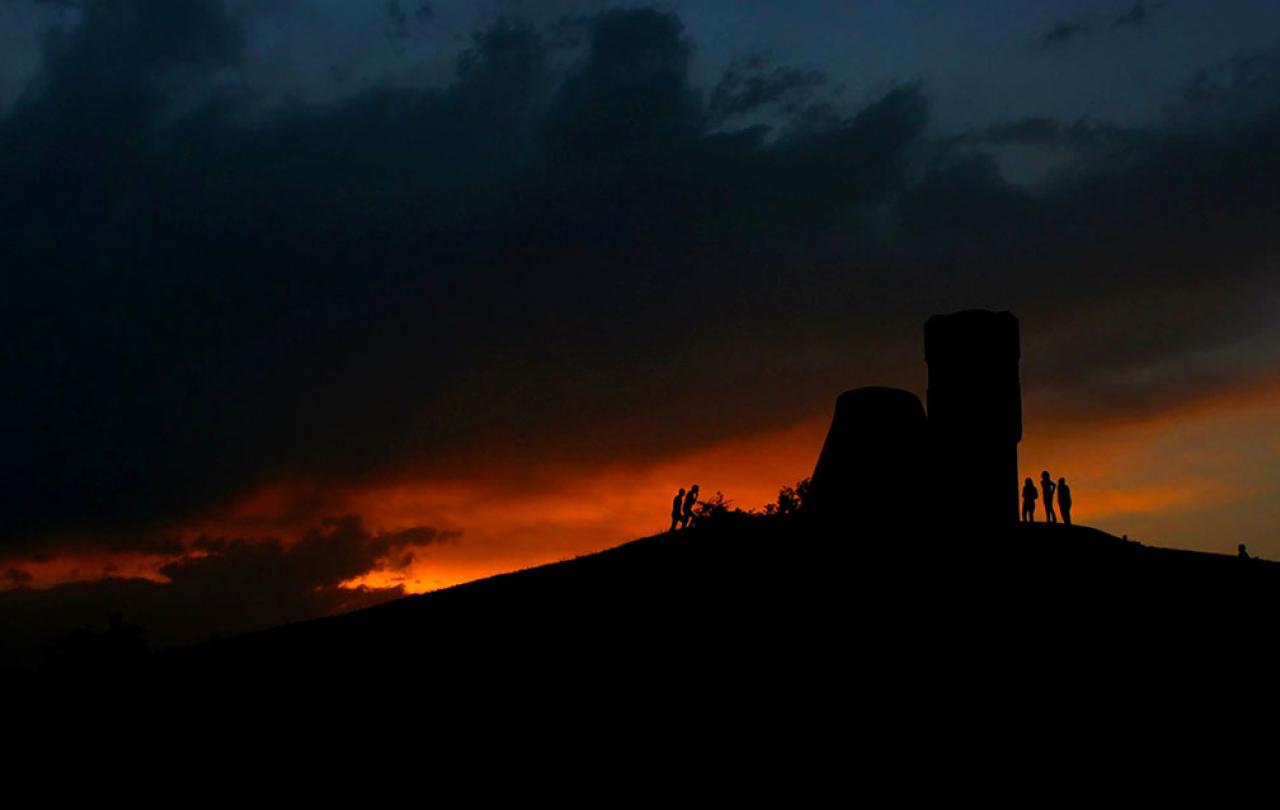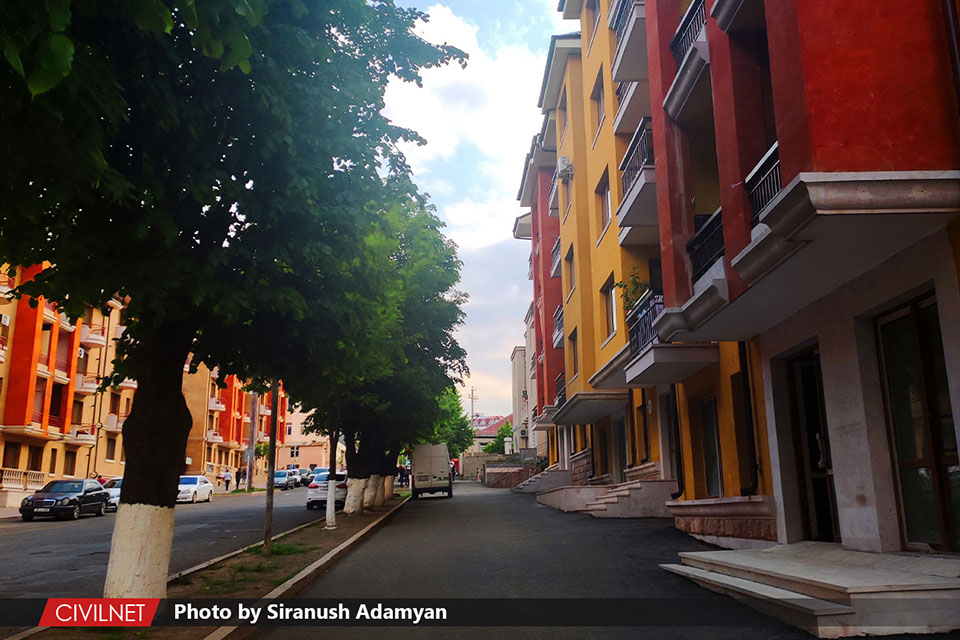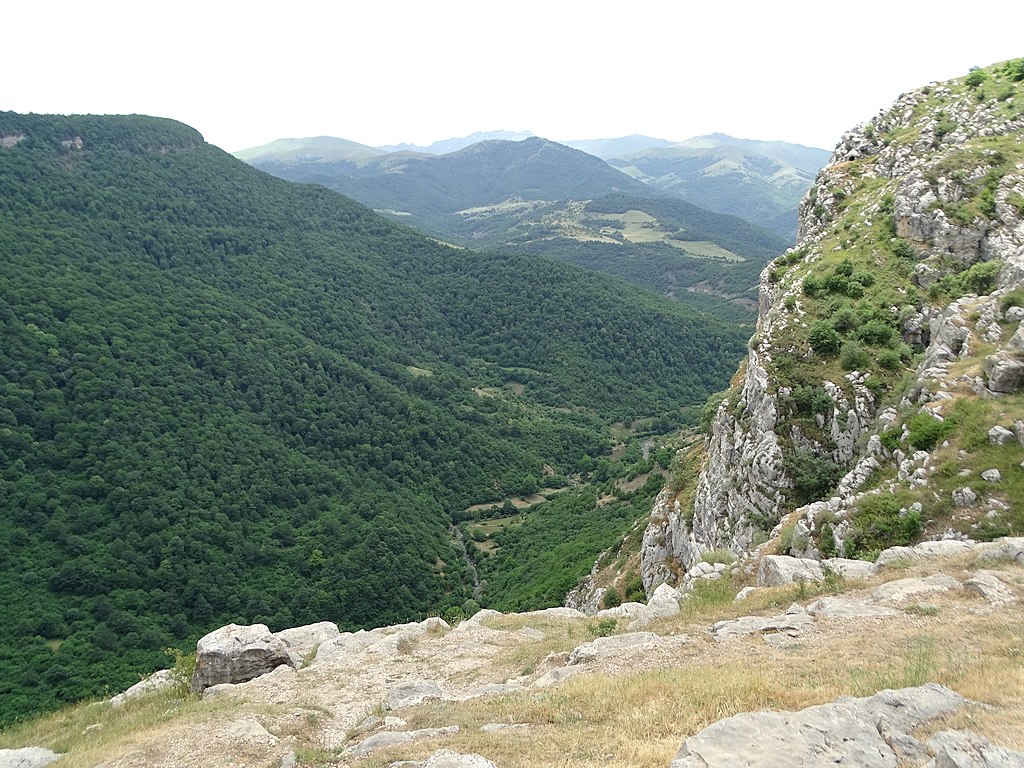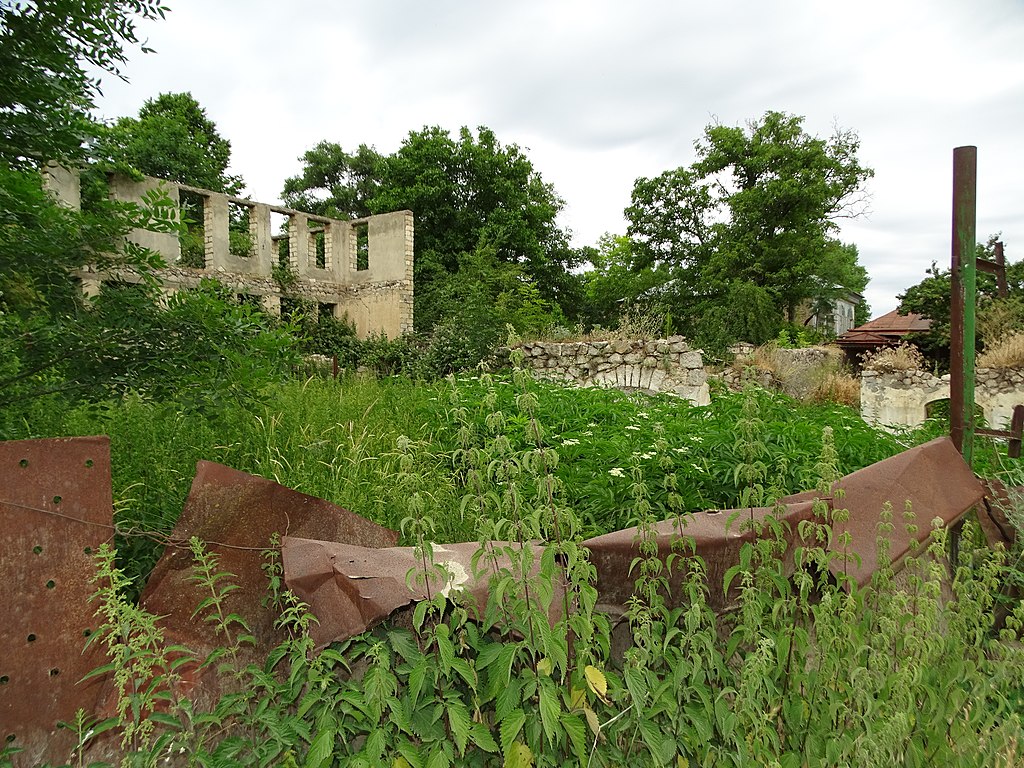Dabrina is a Christian, she’s also Iranian, and the intersection of those two identities mean that she is in danger. After hearing her speech at an Open Doors event in Parliament, Belle Tindall caught up with her and learnt more about what it’s like to be a Christian in a country that regards it as a threat.
So, to start things off - could you paint a picture of what it's like to be a Christian in Iran?
Sure. Being a Christian today is not easy. Christians are the group, the minority, who are being most persecuted in the whole world - more than any other minority. In fact, we are experiencing the worst persecution of Christians in history, 365 million Christians are being persecuted, one in every seven. And in you’re right, we don't talk about it. Most people don't know about it.
I'm from Iran, which is ninth on the World Watch List [a ranking of ranking of the 50 countries where Christians face the most extreme persecution]. I've grown up in an Islamic country, where just being a Christian - you're second-class citizen. You'll face discrimination. You have certain things that you are not allowed to do, just because you're of a different faith.
What are some of those things? Are there certain professions that you'll know you can never get into?
Yes, so for example, I was talking to an old colleague of mine who wants to start a bakery, but he's a Christian. And as a Christian, you're not allowed to touch food. You're not allowed to sell food that you've touched because you are an unclean person. So, you can't have a restaurant. You can't have a bakery. We were thinking, how can he start a cafe? How can he have a business?
I can't be a lawyer.
I can’t be a teacher.
You can't have public jobs.
You can't be a in a hospital, you can’t be a doctor.
So, every public job that I applied to be back then (I was very young, very studious), they said no because I’m a Christian. It also means that I can't serve people because I’m an unclean person.
So, I'm talking about me as a recognised Christian. I was born into a Christian family and my parents were pastors. I am Assyrian Protestant and they are recognized. For us it’s difficult, but if you convert, then everything becomes ten times harder. You’re in real danger if they figure out you are Christian. If you’re in the military and you’re found out, if they find out you're Christian at work, within your family even, you are in immediate danger.
In your speech, you mentioned home raids - could you tell me a little bit about those? And explain to me the way that surveillance is a part of your life?
Normally they have cars follow you, I’ve had cars following me and taking my picture. I had a boyfriend and the government would take my picture on the streets and then send it to my dad. You have no privacy. Also going to my friend's houses, those who were known Christians, I would be photographed there too. And then during the interrogations, they would put my pictures in front of me and say ‘look - you went to this house, you went to that place. Explain what were you doing?’
They constantly follow us.
There were always cars in front of the church too. We actually got to know a few of them, we would sometimes take them out tea and snacks. I mean, they were there for hours, pretending they're reading a newspaper or something. They were always there, so of course, we got to know some of them. They had a camera installed in front of the church, a camera installed in front of our house, a camera installed at the end of our street. They were not hiding it.
And so there was open surveillance. And there was also monitoring through spies. We constantly had spies in the church, in our homes, with our friends. We had to be very careful. Some of my best friends were spies. My brother's best friend was a spy and he eventually admitted it, he told my brother – ‘I'm sorry, I'm the spy. This is their plan: They're gonna raid your church… they’re gonna do this, they’re gonna do that’.
My dad was in prison, he was arrested after they raided our home because one of our small group was a spy. My brother went to prison because his friend was the spy and he could tell the government where the church were about to meet.
I understand you went to prison for a while. What was that for? In particular, what kind of charges did they put against you?
There was nothing. There was no charge. What they were trying to do was to put so much pressure on me that I would sign papers, agreeing that we had conducted illegal gatherings. Admitting that we were training people against the Islamic regime.
They were trying to get me a sign papers with the names of people in ministry, people who were ex-Muslims working in the church, saying that they've been baptized, things like that.
I didn't do any of that, so they kept me in prison.
Now, when I went to prison, when I was first arrested, it was 2009. Most charges against Christians came in two years later. Back then, you didn't have these official charges - You didn't have sentences like that. It was technically legal. It was made illegal in 2011. So, my church was the first Church they legally closed down. They shut it down, and then I think they didn't know what they were doing. They tried to figure out, OK, what's the next step? It took them a few years to figure it out.
My father's charges were ‘acting against national security’ by organising small groups and illegal gatherings. My mum's charges, they were for ‘training spies and organising terrorism’. She was a teacher. And my brother was also charged with organising illegal gatherings.
So we all have been in prison.
Are any of your family in prison right now?
No, my brother was the last one. He just came out. He came out during Corona because prisons were crowded, and he only had a few months left to do.
Can you tell me a little bit, only as much as you're comfortable with, about your experience in prison?
I was 23, so I was very young and naive, and it was terrifying.
I wasn't sure what that what they were telling me was true, because they told me I would be in prison for five years, and we didn't have experience. My parents didn't know what was happening. Even lawyers didn't know – they didn’t know how to deal with it.
Because the charges they were putting against you didn't exist yet?
That’s right, And everything was very new. So even lawyers didn't know.
I don't talk a lot about it.
They would take videos of me and then they would threaten to destroy my reputation. They would do that often. Once I was released, I also had a car accident multiple times, and then the day after my car accidents, they would either call me or come visit me or come to the university and I say ‘oh, how's your car? Did you get it to the garage? We hope nothing bad happened’ and once they said, ‘hey, next time it's gonna be on the driver’s side, so just be careful.’
I saw people being tortured, I heard a lot of screams. Usually when they brought in new prisoners, they had blindfolds on until they would go to their rooms - the reason was just mental games, because you hear the torture.
Where I was staying - it was one huge room with 15 men and I had one small side room for myself, so that was OK. I would hear a lot. They didn't torture me. They, they, hit me a few times but there was no torture.
So just hours and hours of interrogations.
How long were you in prison for?
One year.
You've mentioned that being a woman being particularly dangerous. Obviously, that is something that has brought Iran to people's attention recently - how dangerous it can be to be a woman there. Can you tell me a little bit about that? Does the fact that you're a woman and a Christian change your experience of being a Christian in Iran? Does it make it more dangerous, or a different kind of danger?
It’s definitely a different kind of danger. I mean, we think that the sexual abuse is only happening to the women - and in fact, most men are being sexually abused. I think that the sexual intimidation for men is actually worse. And all men that I've heard from have fought through that experience. I think they do it just to break them down, break down all the pride that they have.
It's horrible for everyone.
But it's not that Christian women have it worse than men, it's just different. Interestingly, Iran has more women coming to Christian faith than men. Women are more vulnerable: A father can kill his daughter or a husband can kill his wife and claim she was a Christian and get away with it Or, you can divorce your wife if you find out that she’s a Christian, and not have to pay her. So, women are more vulnerable than men are. They can lose all of their support. Very fast, faster than men.
I think one of the first questions that hearers of your story would ask is: what is it about your faith that makes you willing to be in such danger?
Absolutely, I understand that.
It’s like – why would you even believe in this religion if you know it can have such consequences, you could lose everything, why pay such a high price?
My answer would be, when you encounter God, when you encounter Christ, when you are healed, when you witness signs and wonders, supernaturally, when you encounter the love of God as a father, as your saviour, as your provider.
How? How can you walk away? When you live in a country that make you desperate, when you have no hope. There is no reason for life. There is no purpose of living. You're suffering. Maybe you're sick and you don't have insurance and can't pay - You turn to God. I read recently an interesting statement that says ‘I've never met an atheist on a lifeboat.’
When you need to be rescued, you will shout out to God.
When you're in that position you will cry out to God, and you know what? God is there to meet you, to encounter you and to love you, to help you, to provide for you, to support you. That's all.
God is faithful and these people are all on the lifeboat and whether they believe in religion or not, they need God.
When you say that God meets you, have you got stories of how? In what ways has God met you when you've needed him most desperately?
Me personally?
Yes. Or stories of others that you know of?
We've had people come to the church and saying – my cancer's gone. I’m healed. I saw Jesus in prison. I saw Jesus in hospital. I saw Jesus on the streets. There's a saying among Muslims and ex Muslims when they meet each other, they ask each other - Have you seen the man in white? And so they’ll talk about the time when ‘the man in white’ came, or ‘the white man’ was there. Many, many Muslim converts have seen ‘the white man’. They’re encountering him like that all the time.
That's incredible to hear. I'll make this my final question. I'm just really curious about what is your hope for the future of the church? What is your hope for your home, your country, your family, your church in Iran?
I hope is that we will see freedom in my country, we will see churches free.
But then, on the other hand, persecution has also brought church growth.
Persecution has brought a lot of Muslims to Christ. So another hope, I would say, is that even in in the midst of persecution, in the mess of what is going on now, God will encounter more people. That Iran will turn into a Christian country.
That millions and millions of people know him and worship him.
Yeah, I think that's my biggest hope for now.
Read Belle's further thoughts and reflections on her meeting with Dabrina.













